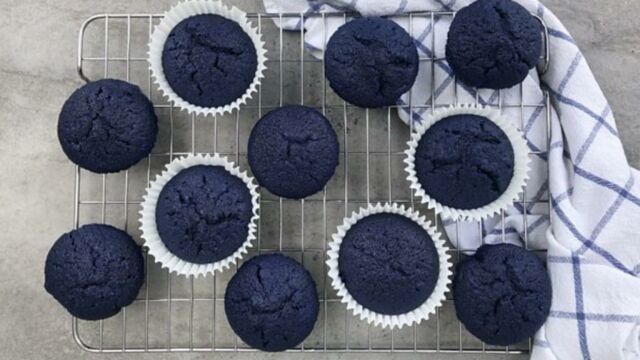What is the blue poop challenge?

This new social media trend making waves is raising awareness on gut health.
People have taken to social media to post pictures of brightly blue-coloured muffins with the hashtag #bluepoopchallenge in an effort to get the conversation surrounding gut health flowing.
Discover our latest podcast
The unique challenge in question, which initially started as research into how well one's digestive system and gut microbiome are working, calls for people to ingest muffins containing heavy amounts of blue food colouring to track their 'gut transit time.'
More under this adMore under this adWhat is gut transit time?
Sophie Medlin, dietician and intestinal specialist, explains that the time it takes for one to excrete the food from the moment it was first ingested is what is known as gut transit time. By having your stool come out with a blueish tint, it makes it easier for people to identity the transit time. Medlin explains that:
Slower transit time is associated with less favourable gut bacteria and a faster transit time is associated with a better gut bacteria profile.More under this adMore under this ad
But transit times that are too fast are not necessarily a good sign as this could be an indication of diarrhoea—and hence, a sign of a less healthy gut microbiome. Dr Medlin said:
A gut transit time of 14–58 hours is a good place to be, and indicates that your gut is working as it should.More under this adMore under this ad
It is important to note that gut transit times vary from one person to the next and can be affected by various factors. The challenge should not be used as medical advice or license for diagnosis, but simply an indicator of where you stand in relation to the population's average.
How to improve your gut bacteria?
The most effective way of improving your intestinal flora is to keep track of your diet by consuming foods that promote a healthier lifestyle. Though every person has a different gut bacteria, as a rule of thumb, eating high amounts of fibre, vegetables and probiotic foods (such as yoghurt, kimchi and sauerkraut) tend to encourage healthy bacteria to flourish.
More under this adMore under this adOn the other hand, avoiding heavily processed foods and opting for healthier alternatives such as extra virgin olive oil over other fats is recommended.